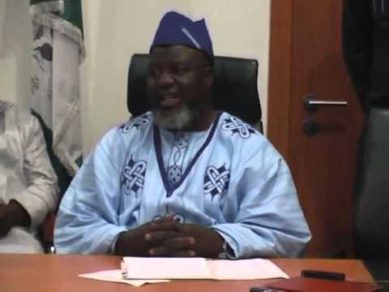National Issues
Shittu’s Communication Blueprint: A Panacea for Nigeria’s Spectrum Dilemma? -By Oscar Emenalor


Minister of Communication, Adebayo Shittu
There has been a flurry of activities going on in the Nigerian ICT space in recent times with the entry of the new government. From the appointment of a new Minister of Communications, Mr. Adebayo Shittu, the confirmation of the new CEO for Nigerian Communications Commission Prof. Umar Danbatta, the arrest of the Director General of the National Broadcasting Commission (NBC), Emeka Mba over allegations of fraud, and the suspension of the Director-general of the National Information Technology Development Agency (NITDA), Mr Peter Jack over allegations of employments and procurement irregularities.
The sector has, in addition, recently witnessed a number of significant deals being closed; some of which will add value in terms of enabling the Ministry of Communication to achieve its mandate to fully integrate information and communication technology into the socio-economic development of Nigeria. Some deals, on the other hand, seem detrimental to the policy thrust and direction for the telecom industry, thus raising concerns as to whether or not the industry regulator, the NCC has a clear strategy to deliver nationwide ICT infrastructure that will support national broadband connectivity and accelerate socio-economic development.
The reported sale of a portion of the 700MHz spectrum by NBC to MTN along with the recent announcement of the acquisition of the last standing CDMA operator, Visafone by MTN Nigeria has raised concerns, and questions on the direction for the industry in view of the country’s plans for ICT penetration, particularly broadband with a target of 30% penetration by 2018. Industry stakeholders are not concerned with the deeper implications that these transactions have for subscribers and the effect on the growth and sustainability of the telecom industry.
Nigeria’s broadband vision is one of connected communities with high speed internet and broadband access that facilitates faster socioeconomic advancement of the nation and its people. It is widely acknowledged that internet and broadband are the foundation for a knowledge-based economy and broadband infrastructure is an enabler for economic and social growth in the digital economy. Pervasive broadband access is therefore a critical requirement for Nigeria to achieve this vision.
It is therefore surprising that the NCC and NBC, rather than align forces to make the scarce and valuable spectrum resource available to all, went ahead to respectively sell off and approve the use of these resources in a manner that is inconsistent with the objectives of the national policy.
More disturbing is the fact that access to the spectrum was given to only one operator – first under a purported “sale” by the NBC and later through the approval of an acquisition whose primary objective was to gain access to the spectrum asset held by Visafone without necessary consideration for the effect of such an acquisition on the industry. Visafone, had only recently been allocated more spectrum, which perhaps made it an attractive candidate for acquisition.
Was NCC’s approval of additional spectrum to Visafone part of the plan to give the CDMA operator a way out of an ailing sector of the industry? If the intention is to facilitate broadband deployment, should the approach not be to grant more operators access to the spectrum so that investment in broadband is diversified thereby resulting in faster roll out, more participation, more revenue? On the contrary, with the concentration of the 700MHz and 800MHz spectrum in only one operator, what we will now have is not only a slower pace of deployment, but issues surrounding lack of competition and probably poor quality of service will come to bear as only one player will offer services.
The actions of NBC and NCC have the combined effect of empowering MTN to stifle competition within the industry. MTN was declared dominant in the wholesale leased line and retail voice market in 2013 by the NCC with obligations imposed to prevent anti-competitive practices which can easily be perpetrated by a dominant operator by sheer reason of its size. In spite of the obligations, it was reported in the latter part of last year that MTN had violated the rules on a number of occasions. In view of the antecedents of the dominant player, we should ask NCC: “What obligations, if any at all, was imposed on MTN to prevent anti-competitive behaviour in the data services market? What will be the repercussion for breach of those obligations?” It is shocking that the NCC would grant an approval to transfer the use of Visafone’s spectrum to MTN under the vehicle of an acquisition, more so without dominance considerations. By this, the NCC has basically empowered MTN to become dominant in the data services market.




















